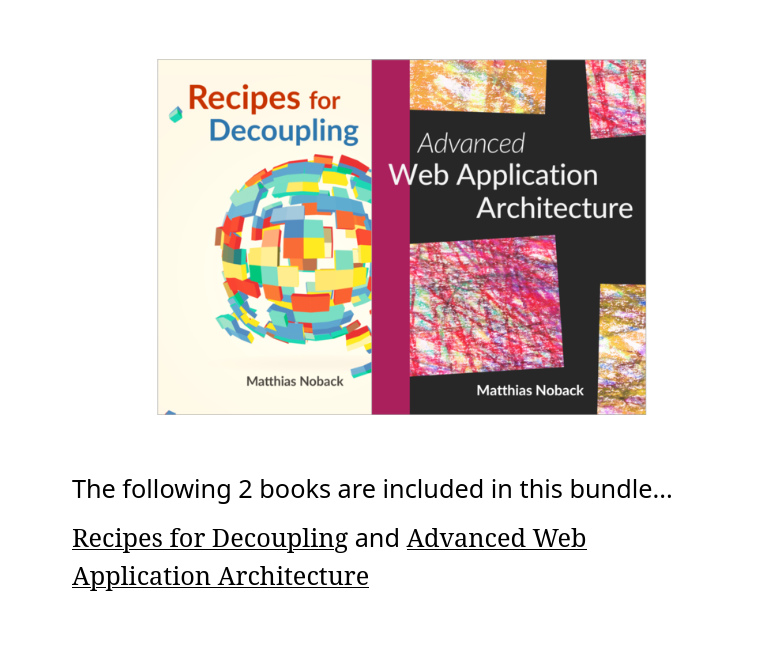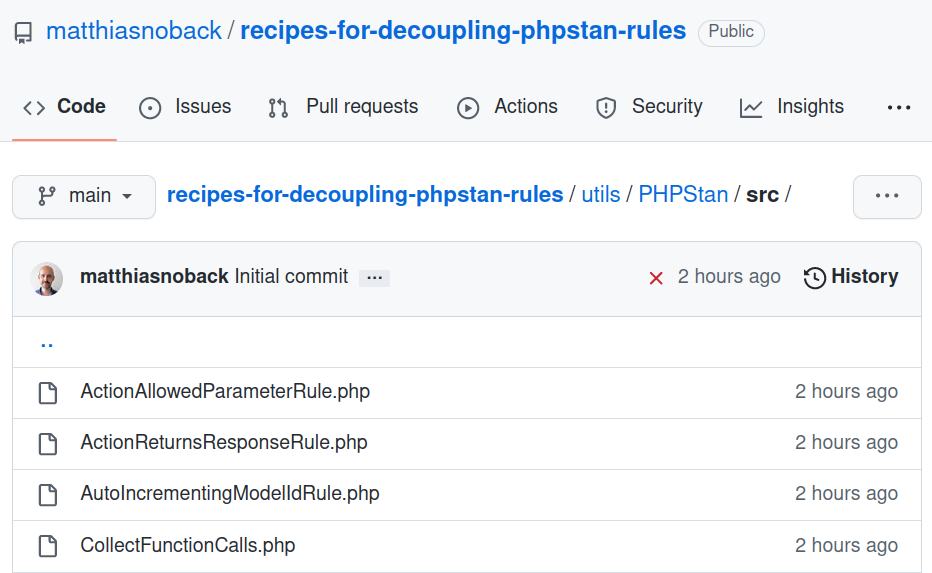New book: Recipes for Decoupling
Matthias Noback
My new book Recipes for Decoupling is 100% complete and available now!
And now some other news related to this book.
A little background information
My new book is based on two things: 20 years of experience with (mostly framework) coupling issues in legacy code, and the hypothesis that PHPStan, the automated static analysis tool for PHP, can help us keep our code decoupled. Decoupling often means we want to use a dependency, but don’t want to couple our code too tightly to it. The process of decoupling often involves some kind of rule, like “don’t use Container::get()”, but we don’t want to focus on this rule all the time, or explain it to new members of the team. Instead, we want a tool that shows you an error when you don’t follow the rule. Such an error will break the build of the project and prevent you from ever coupling to a dependency in this specific way again.
The Architecture & Decoupling bundle
Although the book counts 300 pages, it doesn’t cover too much theory, and shows a lot of practical code samples instead. You’ll learn useful techniques to decouple your code in meaningful ways from frameworks and libraries. Many of these techniques, or recipes, would eventually lead to the discovery of design patterns. In fact, if you already know patterns like Aggregate, or Application Service, you’ll quickly recognize them in this book. But this book focuses not on the patterns, but on the question: what’s a meaningful way to decouple from the dependencies of my project?
Because I still think that it will be interesting to learn about both - using refactoring techniques and static analysis rules to stay decoupled, as well as using design patterns to establish a good architecture for your web applications - I also set up a bundle, providing a nice discount if you buy both “Advanced Web Application Architecture” and “Recipes for Decoupling”: the Architecture & Decoupling Bundle.
PHPStan custom rules repository
In “Recipes for Decoupling” we use PHPStan to establish strict rules regarding the use of third-party code or to prevent certain structures in code. We develop these rules step by step and with steadily increasing levels of complexity, but it may be useful to take a look at the end result. For this purpose I’ve set up a public GitHub repository with the final version of each rule and the corresponding tests:
Interview with Leanpub
If you want to hear more about Leanpub and my experience with book writing on their platform, check out the Frontmatter interview I had with Len Epp recently.
The book
The most important bit: the book. Recipes for Decoupling is 100% done now and available via Leanpub. I will later distribute a paper version via Lulu, but this will take a few more weeks at least.

